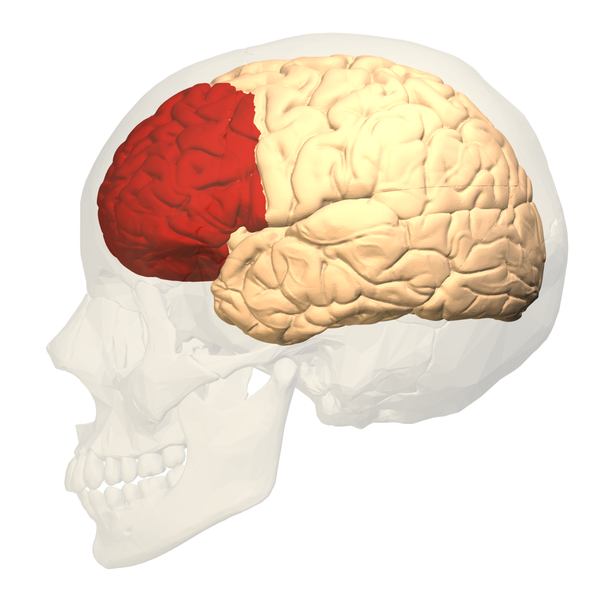We've all heard of intelligence, but have you ever heard of fluid intelligence? It's a type of intelligence that represents how well our brains reason and recall information to solve problems and complete tasks.
Below, we'll explain exactly what fluid intelligence is and how it can be influenced -- including detailing some of the best brain-boosting nootropics for fluid intelligence that can make a big difference in your overall cognitive performance.
What is Fluid Intelligence?
Fluid intelligence describes the amount of efficiency demonstrated by our cognitive processes. It is intimately related to educational and workplace success. Specifically, it represents a person's ability to comprehend, create and think critically to complete tasks and solve problems.
There are several different levels of intelligence known by experts. However, fluid intelligence involves memory, learning, attention control and mood for problem-solving and creating.
Crystallized vs. Fluid Intelligence
Experts like to specify the difference between fluid and crystallized intelligence. Crystallized intelligence measures how much information we end up remembering for recall. For example, it gauges how much vocabulary or information we know at a given time.
- In contrast, as we said before, fluid intelligence has to do with the cognitive abilities that allow us to "know" information.
Fluid intelligence measures how well our cognitive processes work together to store and retrieve relevant information. This involves using new and old information for problem-solving and creative tasks.
Fluid Intelligence and Creativity
Fluid intelligence also has close links to creativity. Creativity involves combining new and old information in the brain to solve problems and construct novel ideas.
- Similarly, fluid intelligence requires us to focus, adapt and retrieve stored information when faced with challenges or problems.
It's true, experts believe fluid intelligence and creativity share the same "cognitive basis." However, they're not exactly sure about where and how they connect in the brain.
In general, fluid intelligence is believed to play a role in creative output. Thus, enhancing areas of the brain involved in creativity may help us unlock new ideas while influencing fluid intelligence.
What Influences Fluid Intelligence in the Brain?
Studies show various parts of the brain are involved in fluid intelligence. For instance, hippocampal decline has shown to be closely linked to lower fluid intelligence in aging men and women.
Below, we'll discuss some other important links between fluid intelligence and the brain.
Lateral Prefrontal Cortex and Fluid Intelligence
 By Polygon data were generated by Database Center for Life Science(DBCLS)<2>. (Polygon data are from BodyParts3D<1>) <CC BY-SA 2.1 jp>, via Wikimedia Commons
By Polygon data were generated by Database Center for Life Science(DBCLS)<2>. (Polygon data are from BodyParts3D<1>) <CC BY-SA 2.1 jp>, via Wikimedia Commons
Can we Really Enhance Fluid Intelligence?
As it turns out, fluid intelligence certainly is changeable. This means we can improve it when we want to, even as we age.
We may be able to do so via cognitive enhancement in various parts of the brain. However, successful cognitive enhancement can take different forms for different people.
- One study showed that brain-training improved working memory in older men and women, which transferred to fluid intelligence. This supports the hypothesis that influencing fluid intelligence is possible, even as we age.
- A separate famous study also shows that: "Fluid intelligence is trainable to a significant and meaningful degree."<1>
- On the contrary, some scientists aren't sure if these effects are a result of brain-training or placebo effects.
Regardless, there is no doubt that fluid intelligence can be enhanced. We're just not sure exactly how it happens. However, mindfulness and meditation may be one sure-fire way to help maintain fluid intelligence.
Meditation May Increase Fluid Intelligence and Reduce Cognitive Decline
-
One study shows that meditation may reduce symptoms of cognitive decline.
- Specifically, it shows that those who meditate and do yoga regularly are more resilient to cognitive decline and have higher fluid intelligence.
This suggests that yoga and meditation may counteract cognitive symptoms associated with aging. In other words, it may help us maintain fluid intelligence as we age.
What Can Hinder Fluid Intelligence?
If you want to maintain fluid intelligence, you should consider which factors may hinder it. Fluid intelligence may be obstructed by:
-
Cognitive Decline Linked to Aging (ex. memory loss)
- Studies confirm that aging is especially detrimental to fluid intelligence. Thus, counteracting cognitive symptoms of aging may be helpful to maintain it.
-
Overwork
- Some research showed that overworking the brain and body leads to a decline in fluid intelligence. This is something to keep in mind, especially as we get older.
-
Stress and Anxiety
- Stress factors have shown to have negative effects on fluid intelligence. Thus, decreasing stress and anxiety may be helpful for increasing fluid intelligence.
All in all, working to counteract these factors may help us maintain fluid intelligence, especially as we age. Next, we'll discuss which cognitive processes have proven to affect fluid intelligence specifically.
Cognitive Functions Involved in Fluid Intelligence
Various cognitive processes are linked to fluid intelligence in the brain. Below, we'll discuss these processes and how we may manipulate them to enhance cognition and possibly improve fluid intelligence.
Working Memory
Working memory plays a significant role in fluid intelligence. Actually, working memory levels have proven to correlate with fluid intelligence levels.
- One study from 2008 shows that working or long-term memory enhancement helped improve fluid intelligence in subjects after up to 19 days.
- Another study shows that high working memory capacity is intimately linked with high fluid intelligence.
- It states that working memory keeps relevant information within reach in our brains until we need to apply it for task-completion or problem-solving.
- It also shows that lower working memory capacity is linked to less ability to maintain focus on that available, relevant information for specific tasks or problems.
- In relation, it linked higher working memory capacity to higher attention control and fluid intelligence.
So, issues concentrating on relevant information or tuning out distractions are associated with lower working memory, which is linked to lower fluid intelligence.
Knowing this, we can conclude that improving attention control and working memory can help improve fluid intelligence. However, we're not sure exactly how much this can help.
Attention Control
Attention control is our capacity to focus on relevant stored information (in the working memory) while suppressing irrelevant information. As we've gone over, attention control and working memory are both linked to fluid intelligence.<2>
If we have enough focus and working memory capacity, we can apply the relevant ideas from our working memory to the task at hand easier. Thus, we may be able to influence fluid intelligence by increasing attention control.
Neurogenesis and Neuroplasticity
Neurogenesis is the growth of neurons, which experts believe may be important in the maintenance of spatial memory and learning. Neuroplasticity is the brain's ability to create and maintain new neural connections throughout the brain.
-
One study shows that a regimen of exercise and mental training together may increase neurogenesis in the hippocampus.
- So, increasing neurogenesis support may increase memory and learning to improve fluid intelligence.
- In relation, Nerve Growth Factor (NGF) has shown to counteract symptoms of dementia and boost cognitive performance via neurogenesis in the hippocampus.
- As such, we can speculate that promoting the production of NGF may help maintain cognitive functions and thus, fluid intelligence.
- In addition, experts believe neuroplasticity is an integral part of fluid intelligence and cognitive enhancement.
- For instance, one study states that "the integrity of hard connections across the entire brain or spontaneous harmonic coactivation among distant regions" is important for cognition.
All in all, we can conclude that supporting neuroplasticity and neurogenesis is likely good for fluid intelligence.
Dopamine in the Frontal Cortex
Dopamine has shown to be involved in the working memory, learning and attention control aspect of fluid intelligence. It is technically released in the prefrontal cortex, which influences working memory and attention control.
- One study suggests that the dopaminergic pathway in the prefrontal cortex may be able to predict levels of cognition.
As a result, we can speculate that dopamine secretion may help with working memory and attention control for effective fluid intelligence. However, more research should be done to prove this notion.
Mind Lab Pro® Nootropics for Fluid Intelligence
Mind Lab Pro® was formulated with the best multi-tasking nootropics to improve all aspects of cognition. While research has yet to link fluid intelligence with nootropics directly, below we'll speculate on possible nootropics for fluid intelligence that are most likely to bring cognitive benefits.
L-Theanine
L-Theanine is a calming natural nootropic found in green tea. It is known to increase focus while reducing stress to induce relaxed concentration, and may be one of the top nootropics for fluid intelligence.
- Specifically, L-Theanine may increase the production of GABA, an inhibitory neurotransmitter that can buffer stress. It may also support dopamine and serotonin production. These neurotransmitters may help with focus on problem-solving or task completion.
In addition, L-Theanine is associated with alpha wave activity, which may be linked to cognitive enhancement, attention and possibly, fluid intelligence. Alpha wave activity is also associated with mindfulness for meditation.<3>
More on Mind Lab Pro® L-Theanine
Bacopa Monnieri
Similar to L-Theanine, Bacopa Monnieri supports GABA and acetylcholine in the brain. Thus, it also supports stress-reduction, memory enhancement, concentration and learning.
- For example, one study shows that Bacopa Monnieri can help counteract dementia and improve memory in younger and older men and women.<4> This supports its effectiveness in counteracting cognitive decline.
Another study shows Bacopa Monnieri may help prepare the brain for action in stressful situations. All in all, it may be a useful nootropic for anyone who wants to try to influence fluid intelligence by reducing stress and maintaining memory function.
More on Mind Lab Pro® Bacopa Monnieri
N-Acetyl L-Tyrosine (NALT)
N-Acetyl L-Tyrosine helps to regenerate neurotransmitters that may be lacking because of stress and/or aging. For example, NALT is known to help with the production of dopamine and norepinephrine, which can influence attention and memory to optimize cognition.<5>
N-Acetyl L-Tyrosine also increases the production of catecholamines that tend to decline naturally with age. Low levels of catecholamines have been linked to more stress and less brainpower. However, NALT may help counteract this effect.
In addition, studies show NALT may also help with learning and working memory during multitasking. Overall, it may be helpful for aging men and women as well as writers, students and musicians. NALT is among the most desirable nootropics for cognitive functions related to fluid intelligence.
More on Mind Lab Pro® N-Acetyl L-Tyrosine
Citicoline
Citicoline is also known to support acetylcholine to help improve working memory and thus, may indirectly enhance fluid intelligence. This may be helpful seeing as acetylcholine production tends to slow down as we get older.
In addition, citicoline supports overall cognition and neural maintenance, which is great for fluid intelligence. As such, it may work wonders for older people, gamers, or anyone looking for a working memory and learning boost.
More on Mind Lab Pro® Citicoline
Conclusion
Mind Lab Pro® nootropics for fluid intelligence optimize brain functions like memory, attention and mood to promote peak performance and 100% Brainpower™.
- Specifically, Mind Lab Pro®'s all natural Universal Nootropic™ formula is a whole-brain optimizer that targets every aspect of human cognition, including fluid intelligence.
Take it to enhance the reasoning and recall that drive fluid intelligence, for superior cognition across creative problem solving, pattern recognition, personal and professional performance, and more.
References
- Sternberg RJ. Increasing fluid intelligence is possible after all. Proc Natl Acad Sci U S A. 2008 May 13; 105(19): 6791–6792.
- Unsworth N et al. Working Memory and Fluid Intelligence: Capacity, Attention Control, and Secondary Memory Retrieval. Cogn Psychol. 2015.
- Orenstein D. A neural basis for benefits of meditation. News From the Brown. 2013.
- Morgan A. Grey matters: does Bacopa Monnieri improve memory performance in older persons. Southern Cross University. 2006.
- Jongkees B et al. People are different: tyrosine's modulating effect on cognitive control in healthy humans may depend on individual differences related to dopamine function. Front Psychol. 2014; 5: 1101.




































